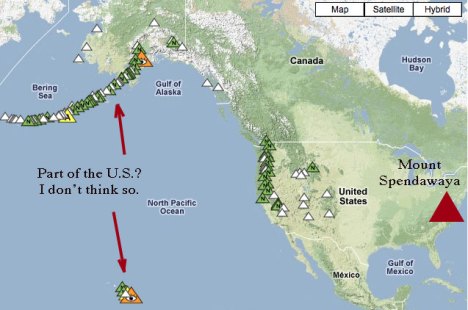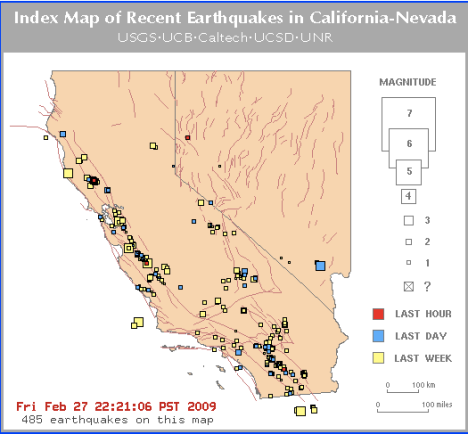Luke Laurie- Teacher Blog https://lukelaurie.wordpress.com

Money Makes Money Better Than Work
I’ve always been a believer in hard work. Indeed, for most of my life I’ve worked hard, probably too hard sometimes, at my job, my hobbies, and my projects. Weekends, evenings, and vacations have all been sacrificed for my commitment to my career.
For the most part, I’ve been rewarded for my efforts. But I recently came to a conclusion that made me question almost everything I do, when I suddenly realized the cards are stacked against me. My bootstraps are tearing.
I realized- Money makes money better than work.
I’ve been going about this all wrong. My efforts at work barely matter in our economic structure, unless I do something differently, my family will be confined to our caste for my entire life.
No matter how much I devote myself to my work and extra projects, I will never be as well off as someone who started out rich, even if that person never worked a day in their life. In this blog entry, I’ll explore some of the financial differences between the rich and the working, and show a principal flaw in “trickle down” economics. This brief analysis will no doubt be simplified, but be no less true than a more complex analysis.
Work makes money, but not very well
Over the course of my career, I will make an estimated 2.5 million dollars total.
I’ve been a teacher for 12 years. For my first few years, I was paid at poverty level, my next decade at lower middle class, and for the rest of my career, I’ll be paid a middle class salary. If I had not quickly achieved my master’s degree, the poverty level wages would have continued for most of a decade. Most teachers don’t stay in the field that long. When my home is paid off, I should be comfortable, barring a medical catastrophe. I will never be rich. I will be able to retire if the system remains solvent.
How does my income and lifestyle compare to someone, who, instead of working, begins the game with the same amount I will make over the course of my life?
Let’s image that someone is fortunate enough to begin their adult life with 2.5 million dollars. They didn’t earn it. They just got it. Perhaps there was some “death tax” on it, perhaps not, but there are very easy ways around estate taxes, and when you’re rich, its easy to pay someone to figure them out.
In this comparison, I’ll refer to the person with income like mine as the worker, and person who begins with 2.5 million as the heir.
Income
Worker: Early in the worker’s career, she survives on about 20k annually. She drives a used car, rents an apartment, and bargain shops. Her income is entirely devoted to basic living expenses. Food, housing, medical expenses, and transportation. She likely is accruing debt during this time in her life, with the hope that future earnings will allow her to pay this debt off. She has no disposable income.
Heir: Without any work at all, and without any creative investing whatsoever, the heir can expect to make a minimum of 100,000 dollars on simple interest annually. Naturally, the heir would be tempted to make investments with higher potential return, but would be equally likely overspend. By spending a million dollars upfront on cars, real estate and other luxury items, we can chop the Heir’s savings down to only 1.5 million. With very safe investments, the Heir can still look at making an easy 7% return, which puts him back to generating $100,000 annually without work, with a million in swag. He eats well, he drinks well, his expenses are not confined to necessities. He has tens of thousands of dollars in disposable income.
Property
Worker: If she’s fortunate and frugal, within a decade, she’ll be able to scrape together a down payment and buy a modest home. She will pay for this home for the next 30 years, and by the time she’s done paying for it, because of compound interest, she will have paid for the home two and a half times. She’ll pay nearly half a million dollars for a home that’s worth $200,000.
Heir: The fortunate son doesn’t need to worry about a loan and overpaying for real estate. He can pay cash for a home worth $500,000. He actually gets what he pays for. If he decides that he wants income properties, he can pay cash for property that will guarantee income. In most markets, he could leverage his cash, putting only half down for the property, borrow the balance, and STILL be guaranteed income. As a landlord, he can write off any improvements, repairs, or upgrades to these properties, unlike the Worker who’s stck with the bill for every broken thingamajig. His 500,000 dollars cash could easily turn into a million dollars in real estate, with the capacity for paying for itself. The Heir does not have a mansion in this scenario, but makes real estate decisions that will not necessitate having to work for a living.
Savings
Worker: Without significant sacrifice, amassing any sizable savings will not be possible in the worker’s first decade of her career. If she has children and a family to support, this will become increasingly difficult. Not until midway through her career will she start to get ahead. More likely than savings, the Worker will be amassing debt. The degree of this debt will affect her ability in the future to accrue savings.
Heir: The Heir starts with income generating savings. By keeping some of this income, the Heir has an income generating perpetual motion machine. Let’s say, for example, the Heir begins with the 1.5 million in savings as described above, and he makes 7% interest on the money from investments. He spends half of the interest income, and returns half to the pot. We’ll say he puts a paltry 3% interest back in to the savings. He’s blowing 60,000 dollars a year in disposable income. Result: In 10 years, the 1.5 million in savings is now 2 million. He does nothing, and his net worth grows.
Work
Worker: Of course, the worker works. She spends most of her days at work. She schedules appointments outside of her work day. She misses some important events because of her professional obligations. She works when she’s sick from time to time because of her limited leave days. She usually has weekends and evenings to herself. After all, she’s a college educated professional and deserves some leisure time.
Heir: The Heir doesn’t need to work. The interest his money makes provides him with more consumable income than the Worker could ever hope to have. Perhaps he’d be tempted to spend even more of that money, because he needs to do something with his time. He has 365 leave days each year. He stays home when he’s sick, and can devote his time to thinking about ways to have his money make even more money.
Investment
Worker: By and large, the worker will have few, if any investments. She might consider her home an investment, and in a good housing market, it might be. More likely, others will invest in her, requiring her to pay them interest. They’ll loan her money for cars, for real estate, for home improvements, and for month to month expenses. They’ll invest in her vacations and earn 10% or more on credit card interest. She’ll feel lucky about all the great things she’s gotten to have and do with the borrowed money, but all the while, she’ll be paying extra for almost everything.
Heir: The Heir’s money makes money. He doesn’t borrow, unless it’s for short term leveraging, or unless it’s like the real estate scenario above, where he can increase the long term earnings on his investments by accruing more appreciation by having a greater number of assets. He may own stocks, bonds, real estate, or other securities. Interest is good for the heir. He is paid interest. Rent is good for the Heir. He is paid rent. He’ll scrape a little off the top to pay a financial advisor who will constantly look for the best ways for his money to make money.
Taxes
Worker: Many might assume that this category is where the tables would be turned, where the worker, due to his deductions and so forth would have a distinct advantage over the Heir. They would be wrong.
The worker pays income tax, sales tax, property tax, and payroll taxes. Approximately 15-20% of her income will go to income tax and payroll taxes, about 5% will go to property tax, but only about 1-2% would go to sales tax. During her career, she will have about $600,000 of her income go to taxes. That’s more than she paid for her home. The taxes the worker pays directly reduce the worker’s quality of life, ability to save, and financial security. But she dutifully pays them out of respect for her country.
Heir: The Heir pays income taxes on the interest income on his investments, and capital gains taxes on the sale of investments. He, of course, will pay significant sales taxes on all of his spending. With the 100,000 annual income described above, he could expect to pay 30,000-40,000 in taxes, considering his properties, transactions, and investments. These taxes aren’t preventing him from getting ahead, they just slow down his disposable income a bit. His investments, holdings, and net worth continue to grow regardless. The high tax rates imposed on the wealthy only slow the rate of the growth of their wealth, they don’t make them poorer, as some may try to make you believe. Income tax on investments and capital gains slice into his profit, not his wealth.
But many wealthy Americans don’t feel obligated to even pay the taxes they are legally obligated to pay. After pressure from the US, Swiss Banks recently agreed to turn over the names of American account holders who were using Swiss accounts to avoid taxes. They all thought they were in a James Bond film. The IRS, in an effort to increase Federal revenues, thought it would be a good idea to pardon some of these felons. They offered an amnesty program in which millionaire crooks would avoid prosecution in exchange for PAYING THEIR TAXES. How many rich American crooks came forward when they knew the game was up? 15,000. Billions in taxes. Thousands of unethical wealthy people. Read this article for more on the amnesty for rich tax cheaters.
Conclusion
The Worker, if she’s fortunate will be able to live a modest, stable life, and be able to retire with some degree of security. The Heir will watch his holdings balloon over time, and could easily have many times the amount he started within a couple of decades. The cards are clearly stacked in the Heir’s favor. The Heir has no grounds to complain about tax policy, estate taxes, etc. His gravy train is firmly ensconced in the tax codes and our economic structure. The Worker, in this case, a public school teacher, must be content in knowing that her life of work is doing good, that the Heir’s tax deductible donations will never do. The rich will get richer, and the workers will keep on working.
Or, one can get cynical, realizing that working is futile, and find a way to get a hunk of cash and sit on it. It’s clearly the American way.
Filed under: Economics, humor | Tagged: Economics, equity, income, investing, money, taxes, work | Leave a comment »





 In the conversation about how to handle the collapse of the American auto industry, a key component of the discussion seems to receive little attention: Demand. Can we honesty have any hope of saving an industry that produces a product that is urgently needed by almost no one?
In the conversation about how to handle the collapse of the American auto industry, a key component of the discussion seems to receive little attention: Demand. Can we honesty have any hope of saving an industry that produces a product that is urgently needed by almost no one? The economic downturn, coupled with the changing of the guard in Washington, has led to increasing political polarization in economic views. America is more liberal than it has been for many years, and we’ve been voting that way. It is the belief of a majority of Americans that liberal economic policies are what our nation needs to survive. But there is far from a consensus about how we should go about recovering from this precipitous economic decline.
The economic downturn, coupled with the changing of the guard in Washington, has led to increasing political polarization in economic views. America is more liberal than it has been for many years, and we’ve been voting that way. It is the belief of a majority of Americans that liberal economic policies are what our nation needs to survive. But there is far from a consensus about how we should go about recovering from this precipitous economic decline.

